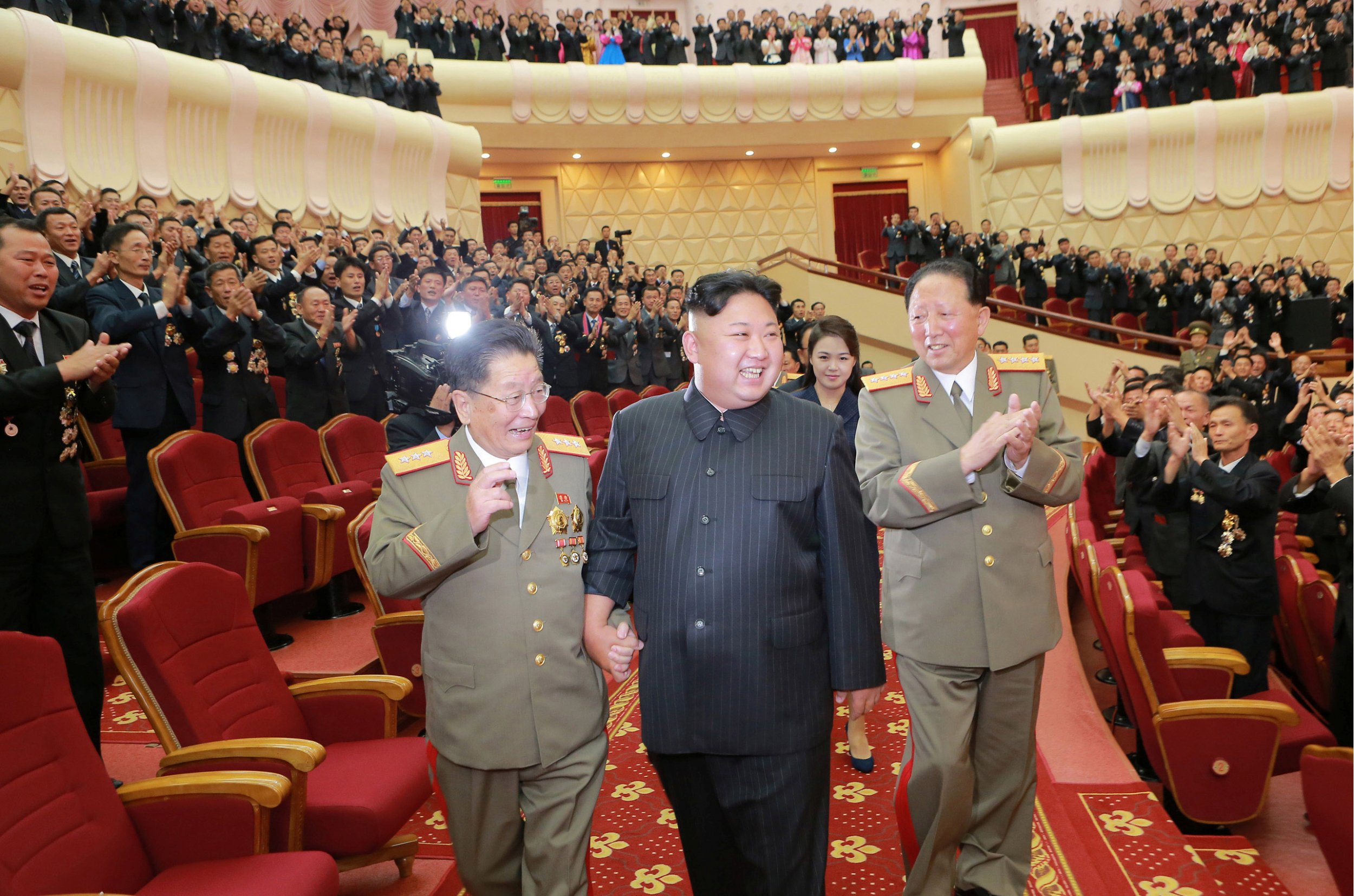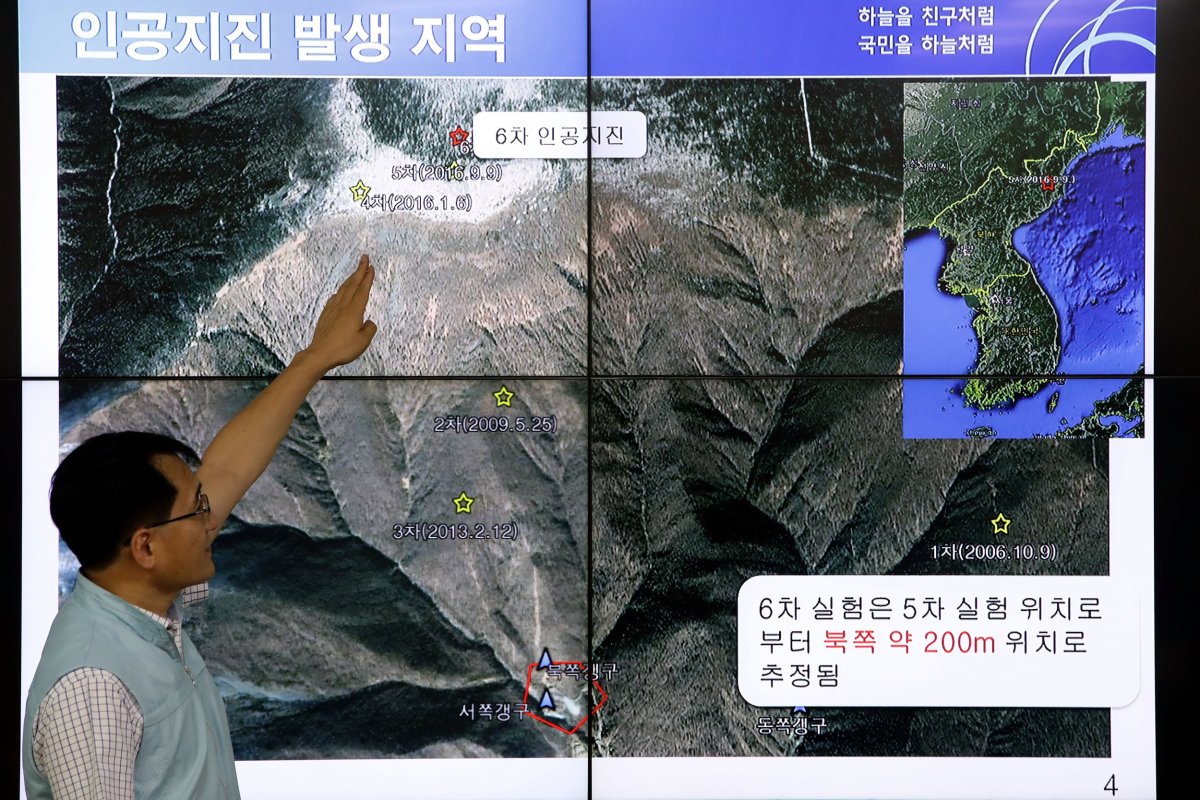
North Korea's sixth and most powerful nuclear test in September and the 6.3 magnitude earthquake it provoked reportedly caused buildings to collapse in a village near the nuclear facility, including a school with more than 100 children in it, many of whom are feared dead.
An unidentified source told the South and North Development (SAND), a research institute that works with defectors from North Korea, about the situation in the village of Sindong-ri, located about five miles from the nuclear test site.
"September 3 was a Sunday, but some 150 students were waiting in their classrooms to do some work," the source said, quoted in the South Korean newspaper Chosun Ilbo. "Casualties occurred when half of the school building crumbled."
The North Korean regime did not inform the people living in the proximity of the Punggye-ri underground nuclear facility of the impending test, so the powerful earthquake that followed the detonation of the 100-kiloton device—seven times more powerful than the atomic bomb the U.S. dropped on Hiroshima in 1945—caught citizens unprepared.
Dozens of the village's buildings, mostly built on wooden stilts, sustained damage that has yet to be fixed. "Farmers couldn't even think of repairing the damage because they're busy harvesting crops even though three months have passed since their houses were destroyed," the source said. "Displaced farmers are staying in temporary shelters or living with neighbors whose houses sustained less damage."

Newsweek is unable to independently confirm the reports. The SAND Research Institute is a recently established organization that works in close contact with North Korean defectors. The group has previously published research based on interviews with 21 North Korean defectors from the Kilju County, in the North Hamgyoung province, where the Punggye-ri test site is located, saying that nuclear material leaked and contaminated water sources, leading birth defects in newborn babies.
Sources familiar with North Korean affairs told Japanese television channel Asahi TV that a collapse at one of North Korea's Punggye-ri nuclear facility's underground tunnels caused the death of roughly 200 people in October. Other North Korean sources separately told Japanese newspaper The Asahi Shimbun an unspecified number of North Korean soldiers and their families were being treated in a military hospital for radiation exposure.
North Korea's state-controlled media have not reported on any developments regarding the Punggye-ri facility since the test in September but dismissed the Asahi TV report as "false" and as "misinformation" intended to badmouth the country and its nuclear development. The bomb test was celebrated in the country's capital Pyongyang with fireworks and a ceremony attended by leader Kim Jong Un and his wife.
After a series of small-scale earthquakes were recorded in the area following the September test, geologists warned the facility, built south of the Mantapsan mountain, may no longer be stable enough to conduct further tests as another bomb test would risk a massive collapse and radioactive leaks.
According to researchers writing for the North Korea monitoring website 38 North, North Korean scientists were unlikely to abandon the site altogether, trying instead to build new underground tunnels to move the test facility to another part of the mountain.
South Korean intelligence officers told lawmakers this week a new nuclear test is unlikely, although one of the tunnels at the Punggye-ri test site seems ready for use. "We forecast that depending upon North Korean leader Kim's determination, a nuclear test is possible any time," the agency was quoted as saying.
Uncommon Knowledge
Newsweek is committed to challenging conventional wisdom and finding connections in the search for common ground.
Newsweek is committed to challenging conventional wisdom and finding connections in the search for common ground.
About the writer
Sofia Lotto Persio reports mainly on Asia and gender issues for Newsweek. She previously covered international affairs with a specific ... Read more
To read how Newsweek uses AI as a newsroom tool, Click here.








